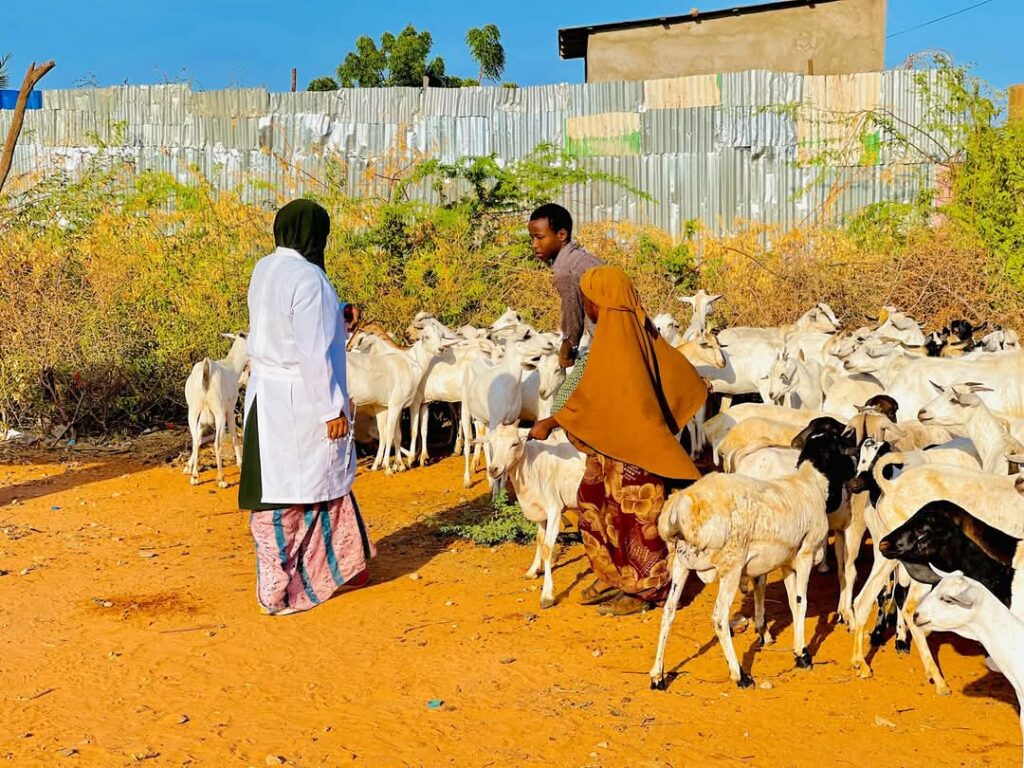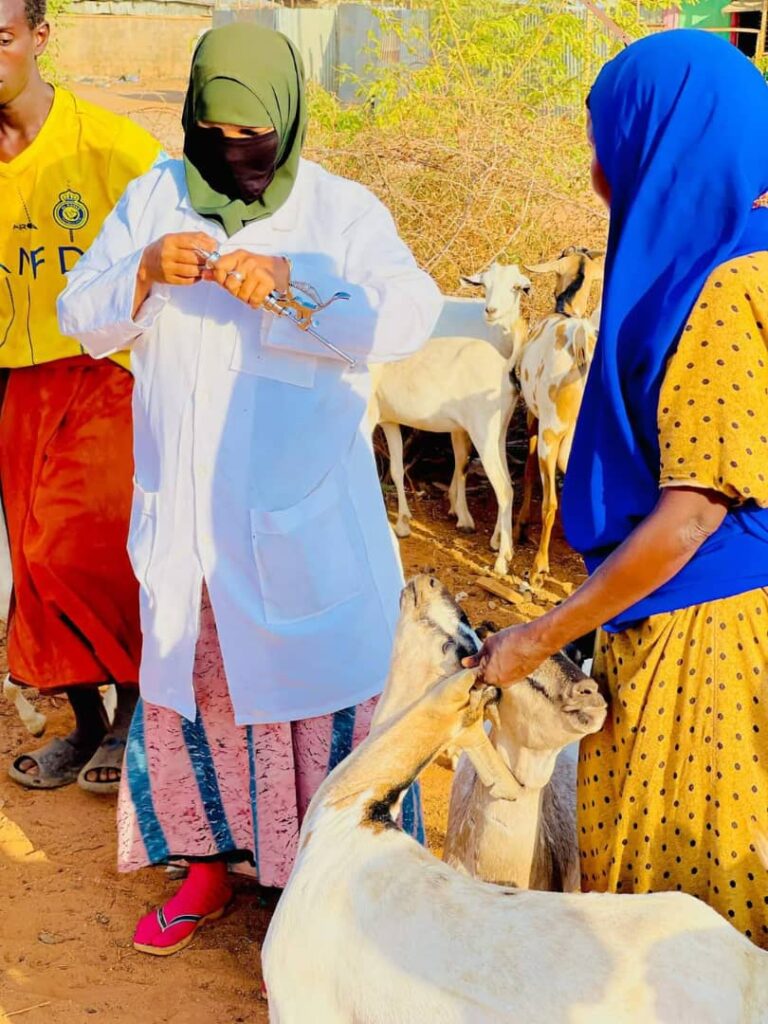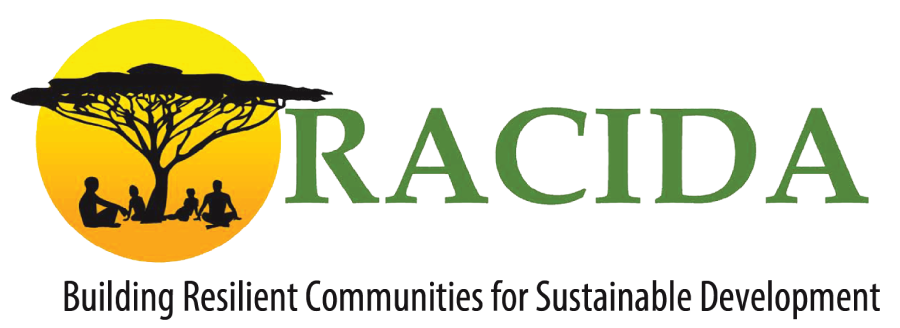
In the heart of Dolo Ado, where patriarchal norms continue to dominate, opportunities for women are often limited, and most professions are overwhelmingly male-dominated, Nafisa Mohamed stands out as a powerful force for change. As a veterinary officer, Nafisa is challenging long-standing barriers and rewriting the narrative in a field where women’s participation has historically been minimal.
Nafisa’s journey began with a simple but profound realization: the acute shortage of skilled personnel in animal health services, particularly among women. Determined to make a difference, she became one of the few women in her community to take on the challenging yet essential role of a veterinary officer, paving the way for others to follow.
Through RACIDA’s BORESHA-NABAD project, Nafisa received specialized training in disease prevention, vaccination, and disease surveillance. This training empowered her with the technical expertise to combat animal diseases effectively, while also promoting gender equality in a profession that has long been dominated by men. Nafisa’s participation in the program not only enhanced her veterinary skills but also positioned her as a role model for women aspiring to venture into male-dominated sectors. Her work with livestock, the backbone of the region’s economy, has gone beyond technical veterinary care to encompass community education, resilience-building, and gender transformation.
Livestock is the livelihood of many families in the region, and Nafisa has become a key figure in improving their health and well-being. She has led several vaccination campaigns aimed at controlling transboundary diseases, which are common in border areas due to cross-border animal movements. Her outreach programs have also provided essential veterinary guidance to local farmers—many of whom had never received any veterinary support before. “When women step into roles like this, it’s not just about treating animals; it’s about transforming communities and empowering families to sustain their livelihoods and build resilience,” Nafisa explains.

Nafisa is part of a larger network of 63 veterinary officers, community animal health workers (CAHWs), community disease reporters (CDRs), and Agrovets trained under the BORESHA-NABAD programme. This initiative is part of a broader effort to transform the livestock sector and build resilience within local market systems. By integrating more women into this traditionally male-dominated field, the program is reshaping perceptions and challenging the gender norms that have long sidelined women in decision-making roles related to animal health.
Through Nafisa’s contributions, the program is not only improving livestock health but also advancing women’s economic status and decision-making power within their households and communities. Nafisa’s presence in animal health work is a significant step toward fostering greater gender inclusivity and encouraging more women to pursue careers in veterinary care—ultimately changing the landscape for women in the borderlands and beyond.
Nafisa Mohamed’s story is a testament to the power of resilience, vision, and the drive to break barriers. She is a beacon of hope for women everywhere who aspire to make a difference, even in the most challenging and unexpected of fields.
